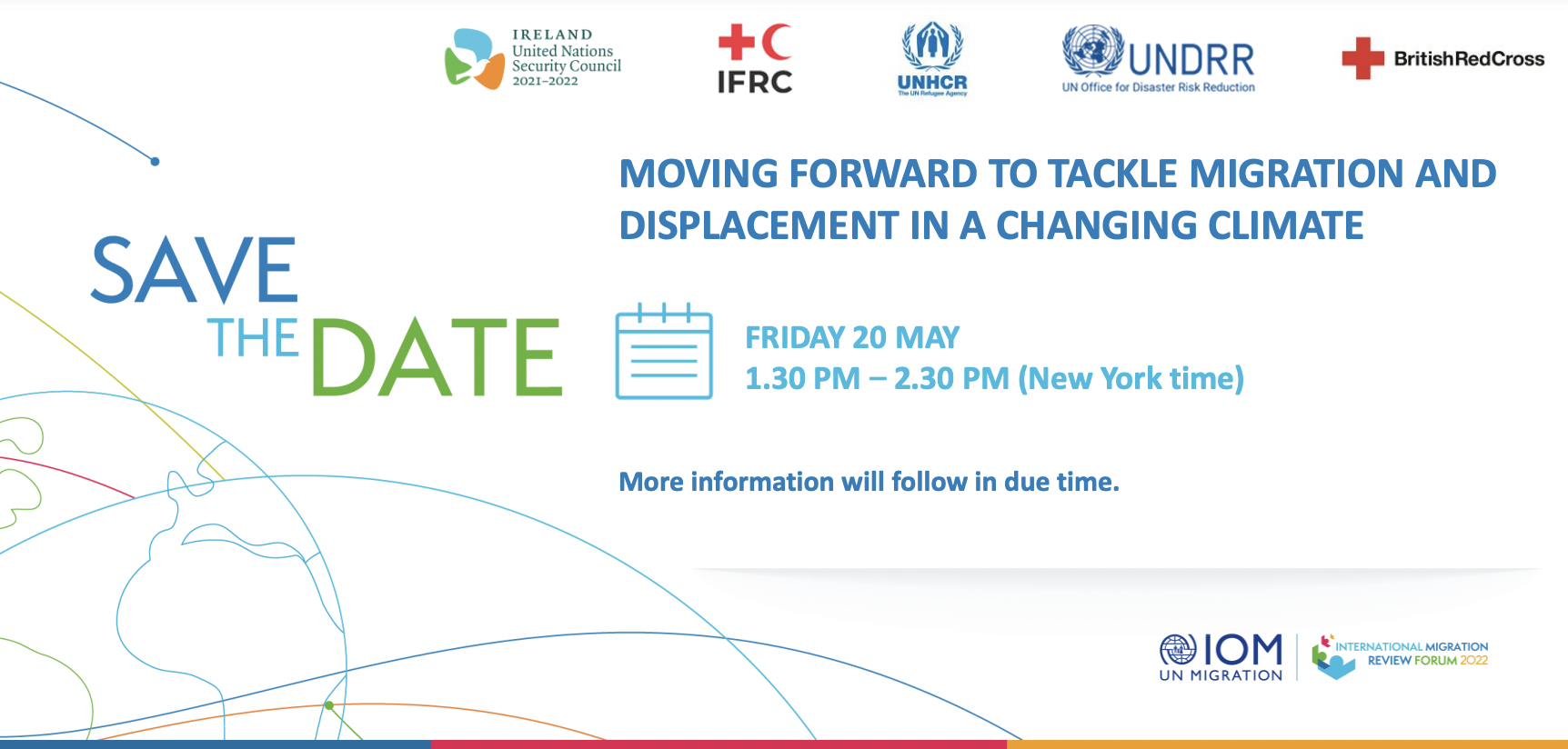Évènements
Moving Forward to Tackle Migration and Displacement in a Changing Climate
As climate- and weather-related disasters increase in frequency and intensity, peoples’ lives are negatively impacted by the destruction, trauma, and resource scarcity, and affecting peoples’ physical and mental health. The IFRC’s World Disasters Report 2020 states that 83% of all disasters are caused by climate- and weather-related events, rising by almost 35% over the last three decades and impacting over 1.7 billion people around the world.
The latest Intergovernmental Panel on Climate Changes (IPCC) assessment states that climate change is contributing to humanitarian crises, where climate and weather extremes are increasingly driving displacement in all regions, while the Sendai Framework for Disaster Risk Reduction recognizes that displacement is one of the most immediate impacts of disasters. Presently, the majority of people forced to move due to climate impacts and disasters are displaced within their own country. According to the IFRC’s report ‘Displacement in a Changing Climate’, approximately 30.7 million people were internally displaced by disasters in 2020, over three times more than by conflict and violence. However, the people moving across borders face critical legal barriers and still need assistance.
As we continue to learn more about climate migration and displacement, it is crucial to prioritize communities that are most exposed and vulnerable to its impacts, as climate- and weather-related disasters exacerbate existing challenges and underlying vulnerabilities and force communities to face compounding crises. In some contexts, the adverse impacts of climate- and weather-related disasters that contribute to migration and displacement can be 1 Internal + logos avoided and mitigated through effective disaster risk reduction measures, investing in adaptation and resilience measures, and scaling up early warning systems. Additionally, it is important to address the protection and assistance needs of migrants and displaced persons when it comes to ensuring the human rights of all, irrespective of their status, including safety, dignity, and access to health and other essential services.
In line with the Global Compact for Safe, Orderly and Regular Migration’s (GCM) Objectives 2, 15, and 16 and connected to the findings and recommendations from the United Nations Secretary-General’s report on the GCM, the IFRC’s report ‘Displacement in a Changing Climate’, and in view of the 27th Conference of the Parties in Egypt, this side-event looks to engage United Nations Member States, United Nations agencies, and humanitarians in a forward-looking conversation that presents concrete recommendations on 1). how to accelerate efforts to reduce the risks posed by climate- and weather-related events and environmental degradation, on people exposed, displaced, and at risk of displacement, and 2). how to ensure that all people at risk of the humanitarian impacts of migration and displacement in the contexts of climate- and weather-related events and environmental degradation receive the assistance they need, including access to humanitarian, health and other essential services, in an inclusive manner.
Register here
